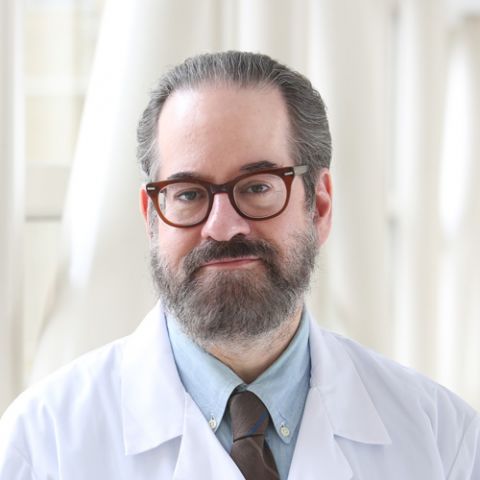Dr. Ellis Levine Explains
Many cancer patients who are in treatment wonder what will happen if their treatment stops working. Here Ellis Levine, MD, Chief of Breast Medicine at Roswell Park Comprehensive Cancer Center, discusses how different factors can affect the options available.
If You’re Generally in Good Health…
Sometimes when treatment stops working, the patient is actually in very good shape and is eligible for another treatment, so we simply discuss the new treatment. It’s the same as any treatment discussion we have with a patient: We talk about the potential benefits and weigh them against the risks, and together with the patient, we decide whether to move on to that option. Some options might include clinical trials of promising new treatments that are not yet FDA-approved.
Sometimes the patient has more than one choice — and sometimes there are many choices. With some of the diseases I treat, such as breast cancer, we have a large number of options. For other diseases I treat, there are far fewer options.
If You’re Not Well Enough to Receive Standard Treatment…
At Roswell Park, we almost never run out of treatment options, because we have a phase I clinical trials program led by Dr. Igor Puzanov that offers investigational drugs for patients who are not eligible for any standard treatments.
However, clinical trials have fairly strict eligibility requirements, and a patient who is not well enough to undergo standard treatment may not be well enough to qualify for a clinical trial. And even if a clinical trial is available, in some cases, it’s time to tell the patient, “Although we do have options, it’s not in your best interest to pursue them, because you’re too ill.”
Hard Discussions
In addition to seeing patients, I also train medical fellows — doctors who have completed their training in internal medicine but are furthering their training in the subspecialty area of cancer medicine (hematology/oncology). I spend quite a bit of time teaching them how to communicate bad news.
Of course, the fastest and easiest thing for a doctor to do is go into the room and offer the patient another therapy. It takes much more time to sit down with a patient’s family and explain that we’re coming to the end of the road with treatment, and maybe we should concentrate on quality of life and not so much on therapy.
In those cases, there are usually many tears. Sometimes there is also disagreement within the family about whether or not Mom should continue to get therapy. These discussions take a very, very long time — much longer than just going in and saying, “We’re going to try Drug D.”
But that’s what should be done ethically. These discussions need to be held when, in the physician’s best judgment, it is time to stop treatment. Then we can work with the family to try to dignify the remainder of the patient’s life and make them as comfortable as possible.
Patient, Physician & Family
So, in a nutshell, when a cancer treatment stops working, many variables will determine what happens next. Discussions about which road to take can be very different depending on the type of cancer involved, the number of treatment options available, how well the patient is doing and how well the physician communicates. It is important that the patient, the physician and the family have these conversations together.
Never miss another Cancer Talk blog!
Sign up to receive our monthly Cancer Talk e-newsletter.
Sign up!

